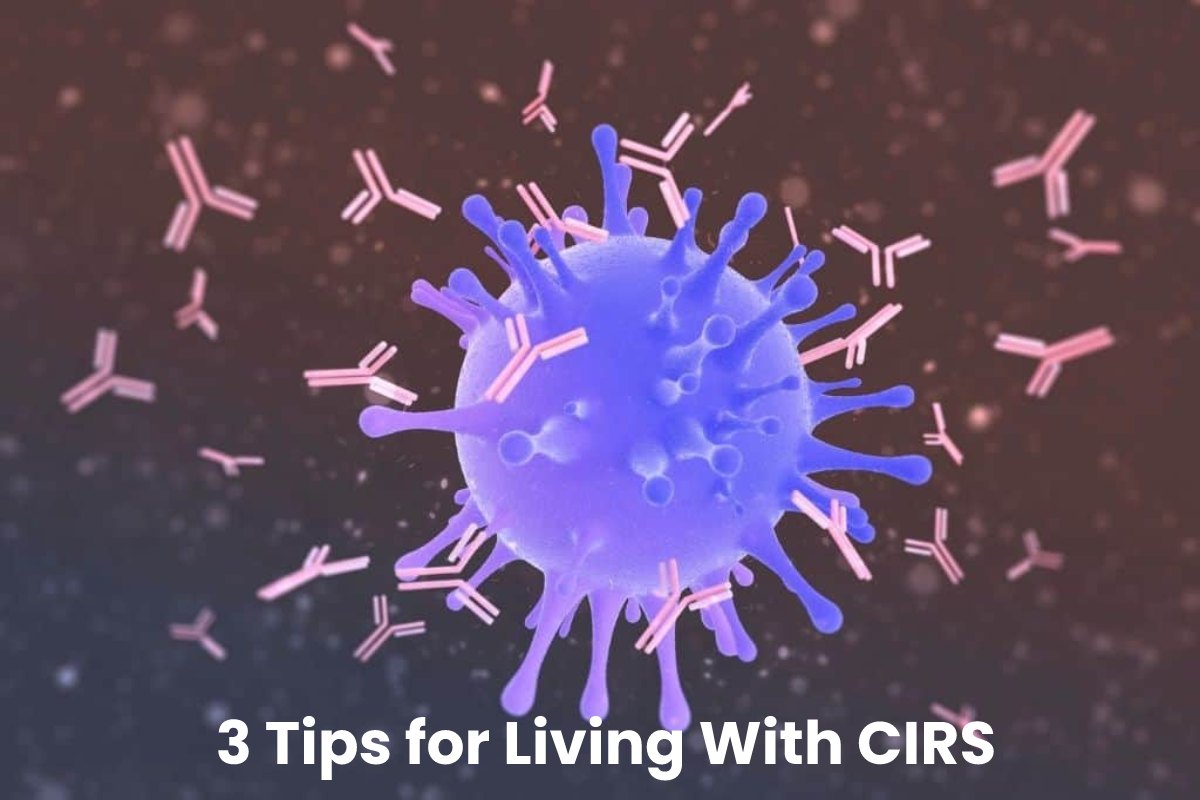
Tips for Living With CIRS
If you’re living with chronic inflammatory response syndrome (CIRS), then you’re probably frustrated and exhausted. You’re sick and tired of being sick and tired. But there is hope at the end of this dark tunnel.
Table of Contents
What is CIRS?
CIRS is the name given to a collection of different symptoms and is also referred to as Mold Illness or Biotoxin Illness. Initially, it was commonly believed that this condition could only be caused by mold exposure. However, over the years, research has indicated that it may also be caused by certain viral infections, bacteria, and fungus.
Because CIRS symptoms often overlap or mimic symptoms associated with Ehrlichiosis, Lyme Disease, and other autoimmune disorders, it’s not always easy to diagnose. Having said that, common symptoms include weakness, fatigue, exhaustion, and other flu-like symptoms.
Depending on the severity, there may also be ENT symptoms (ringing in the ears, dizziness, blurred vision, etc.), musculoskeletal symptoms (joint pain, muscle cramps, burning pain, etc.), lung and heart symptoms (tachycardia, heart palpitations, cough, etc.), and a variety of skin symptoms.
3 Ways to Improve Your Life With CIRS
If you’re dealing with diagnosed or suspected CIRS, it’s important that you take action. Symptoms may continue to get worse over time, and you want to proactively address your needs so that you can find healing. Here are several tips for alleviating discomfort and improving your quality of life.
1. Clean Up Your Environment
As previously mentioned, not all CIRS is caused by exposure to toxic mold. However, it still seems to be one of the primary culprits. And even if your CIRS is caused by something else – like a viral infection – the presence of mold in your living environment can exacerbate symptoms.
While you might not think your house has mold, you’d be surprised how often it lurks in hidden places. This includes air conditioner coils, under sinks, in bathroom walls, and anywhere there’s lots of moisture and poor ventilation.
Carefully inspect your home (and anywhere else you spend a lot of time – such as an office). For best results, get an ERMI mold test by a licensed inspector. If mold is detected, you need to leave the premises ASAP and it must be removed immediately.
Regardless of whether or not you find mold, it’s a good idea to invest in better air purification systems in your home. This could be as simple as swapping out your existing air filters and upgrading with a better option that traps more contaminants. You could also go so far as to install a whole home air purifier.
2. Go On a Mold-Free Diet
Mold and toxin exposure causes your immune response system to flood the body with inflammatory molecules that are designed to protect you. However, if they’re left unchecked, they can actually start to have a negative effect on your body, leading to many of the classic symptoms of CIRS. One way to stop, neutralize, and even reverse these effects is by going on what we call a “mold-free diet.”
Mold-free diets are also known as low amylose meal plans. The goal is to eat only fresh, unprocessed foods like spinach, romaine, kale, zucchini, broccoli, cucumber, asparagus, onions, garlic, etc. You also want to avoid any vegetables that grow underground. Furthermore, avoid any foods that are sweet and high in carbs. This includes sugar, honey, and cultured dairy (which feed fungus).
3. Find a Support in Therapy
It’s difficult for someone without CIRS to truly understand what it’s like to live in your shoes. That’s why it’s helpful to find a support group and/or therapist, like Dr. Lauren Sparks, who understands your physical symptoms.
“Due to my training as a therapist, I am also comfortable addressing the very real psychological effects of living with chronic conditions and the accompanying grief associated with all of the untold losses,” Sparks says. “I believe in the healing power of finding ways forward within a compassionate community.”
This psychological healing is arguably just as important as the physical healing. Don’t miss this!
Reclaim Your Life
It’s impossible for others to know what it’s like living with CIRS. There are days where you wonder if people think you’re crazy. Other days you feel decent. And then there are the bad days where you just want to curl up into a ball.
Living with CIRS means living with a new normal. But if you put these tips into action, you’ll find it easier to gain the upper hand by mitigating symptoms and finding relief.



